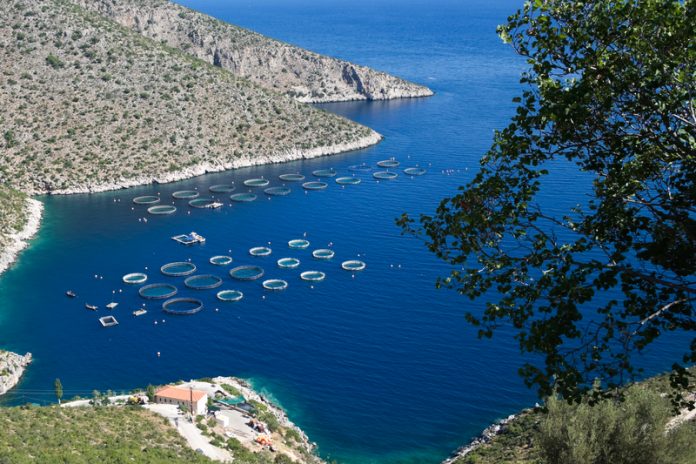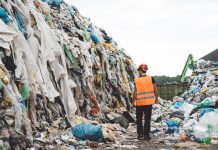Open Access Government charts the recent policy priorities of Virginijus Sinkevičius, the European Commissioner for the Environment, Oceans and Fisheries, as Europe works towards a circular economy
Earlier this year, Commissioner for the Environment, Oceans and Fisheries Virginijus Sinkevičius made a speech discussing a recent comprehensive report on the New Circular Economy Action Plan, for a cleaner and more competitive Europe, conducted by the ENVI Committee. The report – published in early 2021 – communicated an urgent need to move away from a linear model and towards a circular economy. In his speech, the Commissioner stated that “there is no more time for hesitation. The circular economy is a cornerstone of our transition to a sustainable economy and society. And it is a positive agenda that brings benefits to our citizens and provides a range of business opportunities. It’s a triple win – for people, for the planet and for prosperity.”
Sinkevičius discussed the work that has already been done within the implementation of the Action Plan last year, such as the Commission proposal for a new Batteries Regulation. This proposal, he added, “is truly ground-breaking.” It covers, for the first time, the full life cycle of a product and proposes a new toolbox for sustainability. However, he also recognises the importance of looking ahead, and maps out some of Europe’s policies for 2021 and beyond, that are being put in place to ensure a sustainable market and a circular economy. The EU plans to address all three sustainability pillars – environmental, social and economic, and below are just a few of the angles mapped out to help achieve this.
Sustainable product policy
This year, Europe will be rolling out the Sustainable Product Policy Framework, including the Sustainable Product Policy legislative initiative, which will be presented at the end of the 2021. It will set requirements for products and lay out sustainability principles, so that products on the EU market last longer, are easier to repair and recycle, and include recycled content.
Empowering customers
Europe also plans to empower its consumers, ensuring that products produced or sold at the EU market become circular and sustainable. In close interconnection and coordination with the Product Policy, Europe will present legislative proposals to strengthen consumer rights and information and to tackle green claims.
End of life and exporting waste
While a lot has been already done to improve recycling, it is evident that not all problems have been solved. Work to minimise waste and to ensure that it is correctly managed is a huge priority for Europe in 2021.
Harmful landfills, litter and microplastics all present problems, alongside the large concern from citizens regarding dumping waste in countries that cannot deal with it.
The Commission will take action to ensure that the EU does not export its waste to third countries. The review of the Waste Shipment Regulation will play a key role in improving the internal circulation of waste and restricting exports that have harmful environmental and health impacts in third countries or can be treated domestically within the EU.
Furthermore, the Commission is currently working together with the United Nations Environment Programme and the United Nations Industrial Development Organisation to set up an Alliance on Circular Economy and Resource Efficiency (GACERE).
“We need the circular economy to deliver a future that is digital, inclusive, and green. To do this, we must bring economic and environment policies together. Mobilise unprecedented investments. And the Next Generation EU will help us do so,” states Commissioner Sinkevičius.
Fisheries
The EU is maintaining high standards in the fishing sector, Europe is the world’s biggest importer of fisheries products, and fighting illegal fishing is part of its commitment to ensure sustainable use of the sea and its resources, under the Common Fisheries Policy and under its ambition to install better international governance of the oceans. However, between 11 and 26 million tonnes of fish are caught illegally every year, corresponding to at least 15% of world catches. The Commission, leading the fight against illegal, unreported and unregulated (IUU) fishing worldwide (an important aspect of the EU Biodiversity Strategy‘s objective to protect the marine environment) recently issued a warning to Cameroon that it should step up its actions in this area.
“Illegal fishing is one of the most serious threats to the sustainable exploitation of the sea representing a major hazard to the marine environment, the sustainability of fish stocks and marine biodiversity. It is unfortunate that Cameroon has not been able to ensure proper control of fishing activities happening under its flag. The Commission stands ready to work with Cameroon to implement the necessary reforms,” said Commissioner Sinkevičius.
The LIFE Programme
Furthermore, in 2021, the European Commission announced a €121 million investment for new integrated projects under the LIFE Programme for the environment, nature and climate action. This new funding which has increased by 20% since 2020, will promote the green recovery and help multiple Member States to reach their green targets. The 12 large-scale projects are expected to channel significant additional funds, making it easier for countries within the EU to use other funding sources, including agricultural, structural, regional and research funds, as well as national funds and private-sector investment.
Commissioner for the Environment, Oceans and Fisheries Virginijus Sinkevičius commented on this funding, stating that: “I’m excited to see how this new investment will help green the economy, bring back nature and biodiversity and improve resilience to the changing climate in these 11 countries. LIFE integrated projects enable Member States to make a real difference to the environment and people’s lives, by enabling long-term strategies with far more money and capacity than with traditional LIFE projects.”











